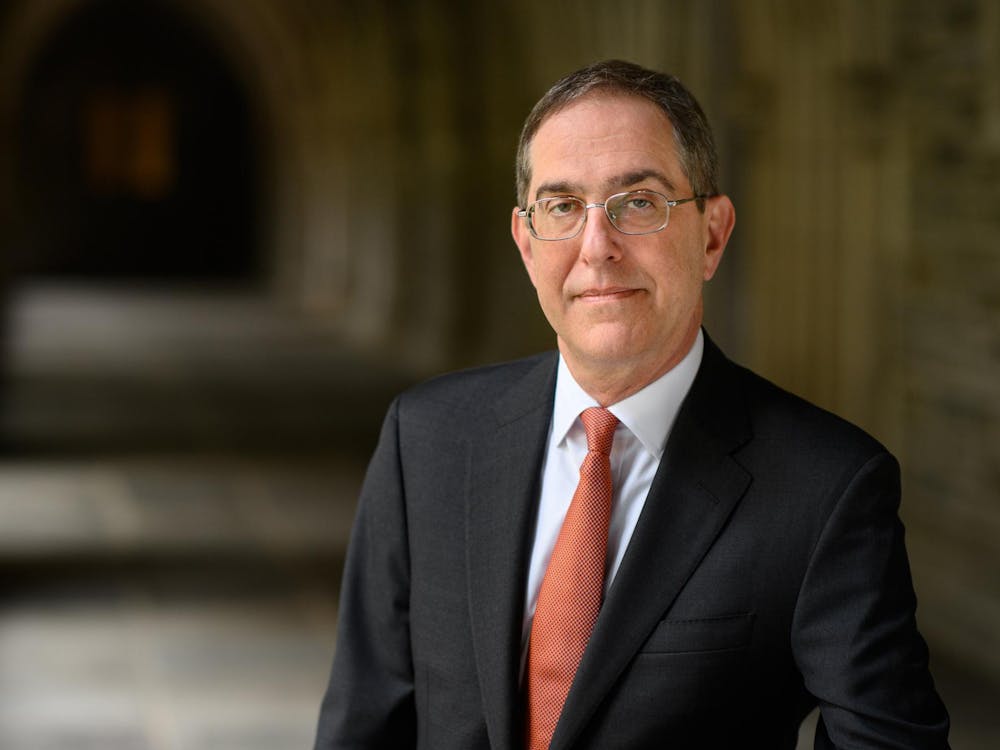“The point of college is to be offended,” my friend said as we left our annual middle school reunion. His words took me by surprise, and we soon ended up in a conversation about rising tension on college campuses. It seemed to the two of us that recent student protests across the country were asking, tragically, for less exposure to controversial material.
Last spring, Columbia undergraduates sought a “trigger warning” for scenes depicting sexual assault in the Ovid portion of their famed Core Curriculum. At Duke this past summer, an incoming freshman protested against an LGBT memoir that ran against his “Christian moral beliefs.”
The ongoing or recent protests at Amherst College and at the University have demanded, among other things, to remove the names of historical figures whom some consider too offensive to acknowledge any longer. And with the removal of the names of Lord Jeffery Amherst and Woodrow Wilson, Class of 1879, comes the unforgiving nature of reality — with their names gone, their legacies and, more importantly, the lessons learned from their flawed histories, may well fade with them. The list of such natured protests goes on.
In many regards, these protests offer valid points. The state of campus life across the country is far from perfect, and can be truly flawed in its handling of equity in race, gender, sexual orientation and many aspects of identity. It is glaringly clear that we have a long way to go. However, I would caution against limiting exposure to controversial material. In fact, as my friend and I agreed, we should embrace such material. As long as it is positive, thoughtful and produces constructive dialogue, we should be open to offense.
When each of us goes to college, he or she presumably hopes to leave the four-year experience wiser and more prepared for the “real world.” Yet to take advantage of such a transformative experience, we need to be open to all ideas — new and old, liberal and conservative, tame and offensive. To drastically simplify and apply the Hegelian Dialectic, we begin young adulthood in the “thesis” phase — we are largely a product of our parents’ views and the comfortable opinions of our childhood. If stuck in such a rut, we change little and do not evolve. Hegel argues that it is only through the phase of “antithesis” — exposure to challenging viewpoints and material that is offensive to our previously held beliefs—that we can finally think independently and understand for ourselves. This leads to the “synthesis” of old and new ideas, to create unique and transformed beliefs held on our own. From this, true change and progress can occur.
Yet amid the connotations of hate speech and personal insult that come with “being offended,” there’s a value of being offended — on an intellectual basis — that we fear or avoid. In a markedly polarized society, we subscribe to media that champion our political beliefs and watch TV channels and online clips that regurgitate our views back to us. We make friends based on political affinity, take classes with professors who share our beliefs and rarely interact with polar opposites in the political spectrum. We seek out protection from opposing views in “safe” classrooms and dorms when, as with language immersion programs, differences in belief should pervade every inch of our life on campus. Even “smart” ads, which populate all of our devices, use search histories to align themselves with our political opinions. In such an age, our stances rarely have obstacles against which to rage and evolve.
Even worse, many movements and counter-movements today deny the validity of opposing views through the damning power of labels. Often, the first rebuttals that come to our lips are that other viewpoints are racist, classist, sexist, communist or a whole other host of “-ists.” When we use such labels, there’s no need to consider the validity of such “offensive” claims, and that is where we fail to learn.
Today, the word “offense” often holds a negative connotation. It implies insult, harm insulted me. Yet when we understand the notion of “being offended” as a constructive experience, both sides can be spurred from the trenches of comfort and the norm. Only then can we take advantage of the diversity of opinions at the University, and only then can we learn and grow.
Paul Kigawa is a freshman from New York, N.Y. He can be reached atpkigawa@princeton.edu.









